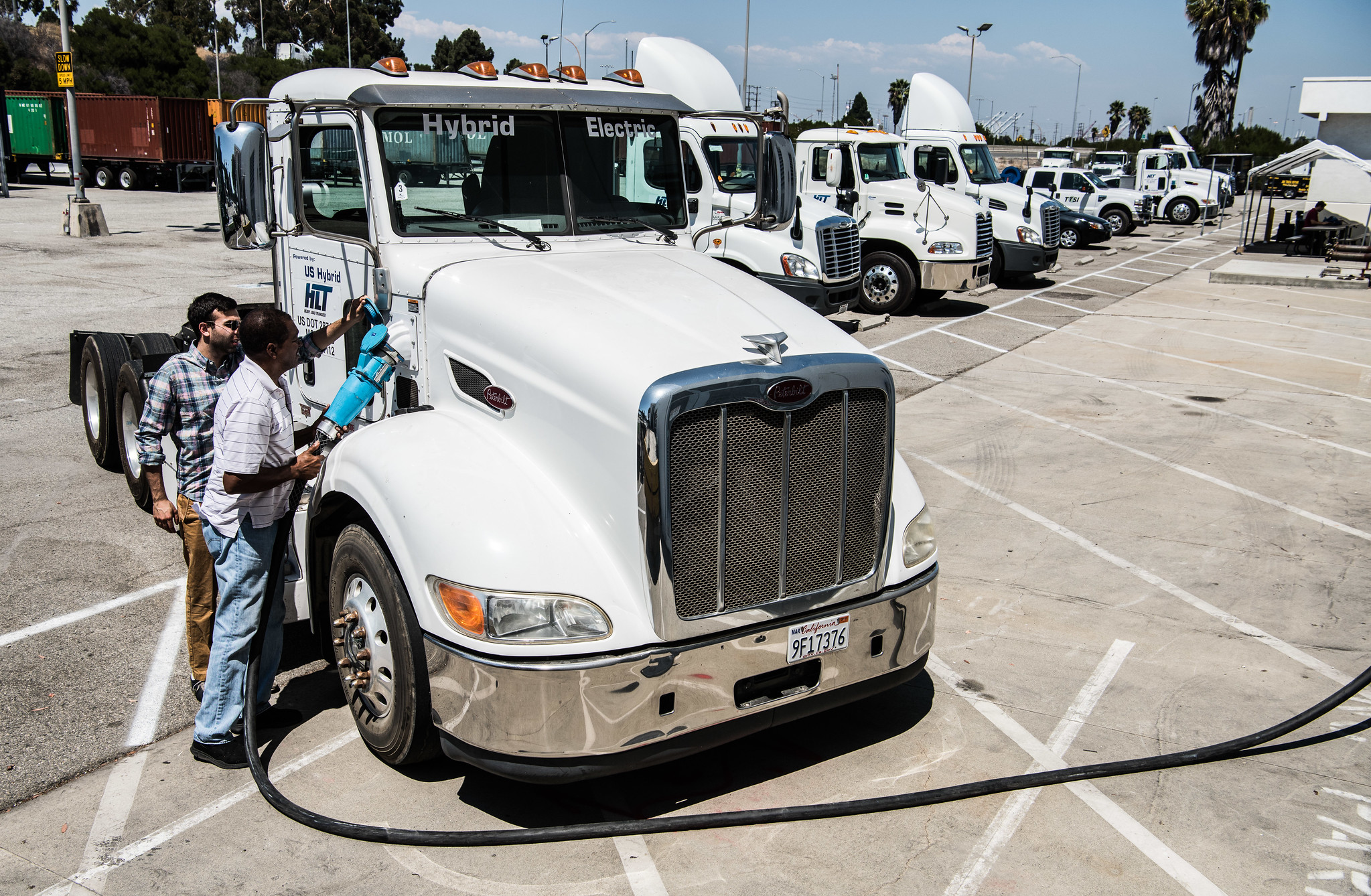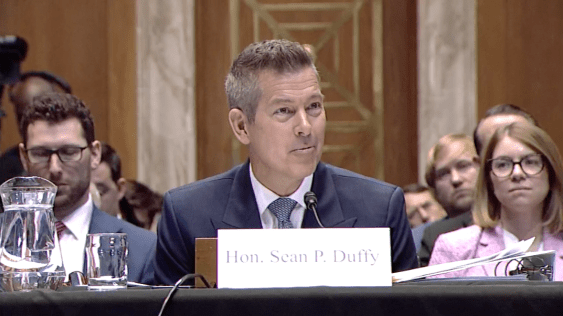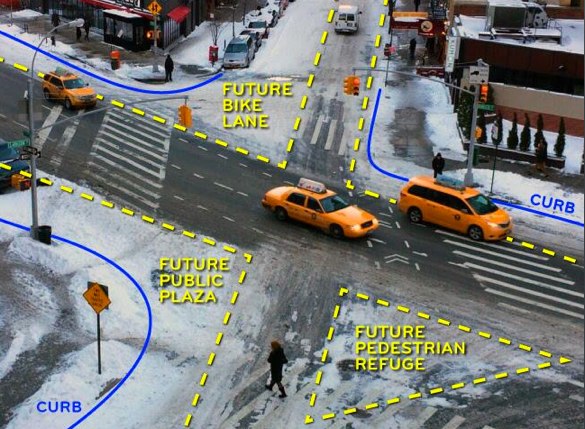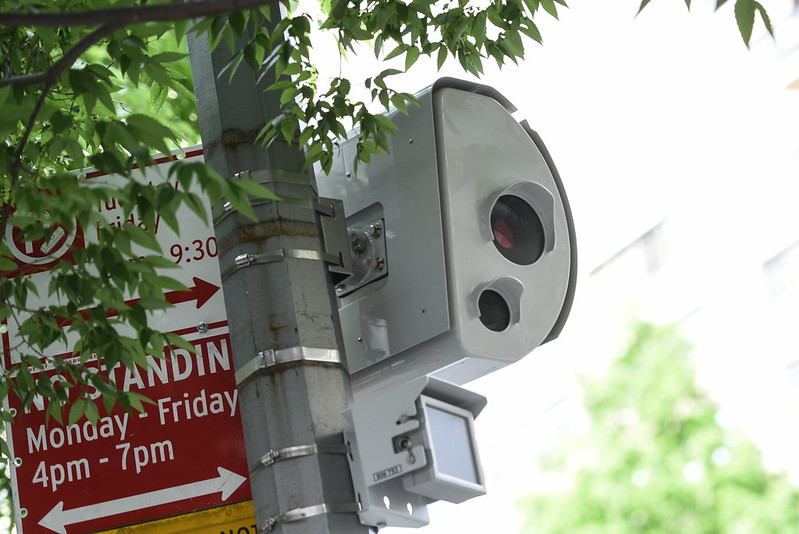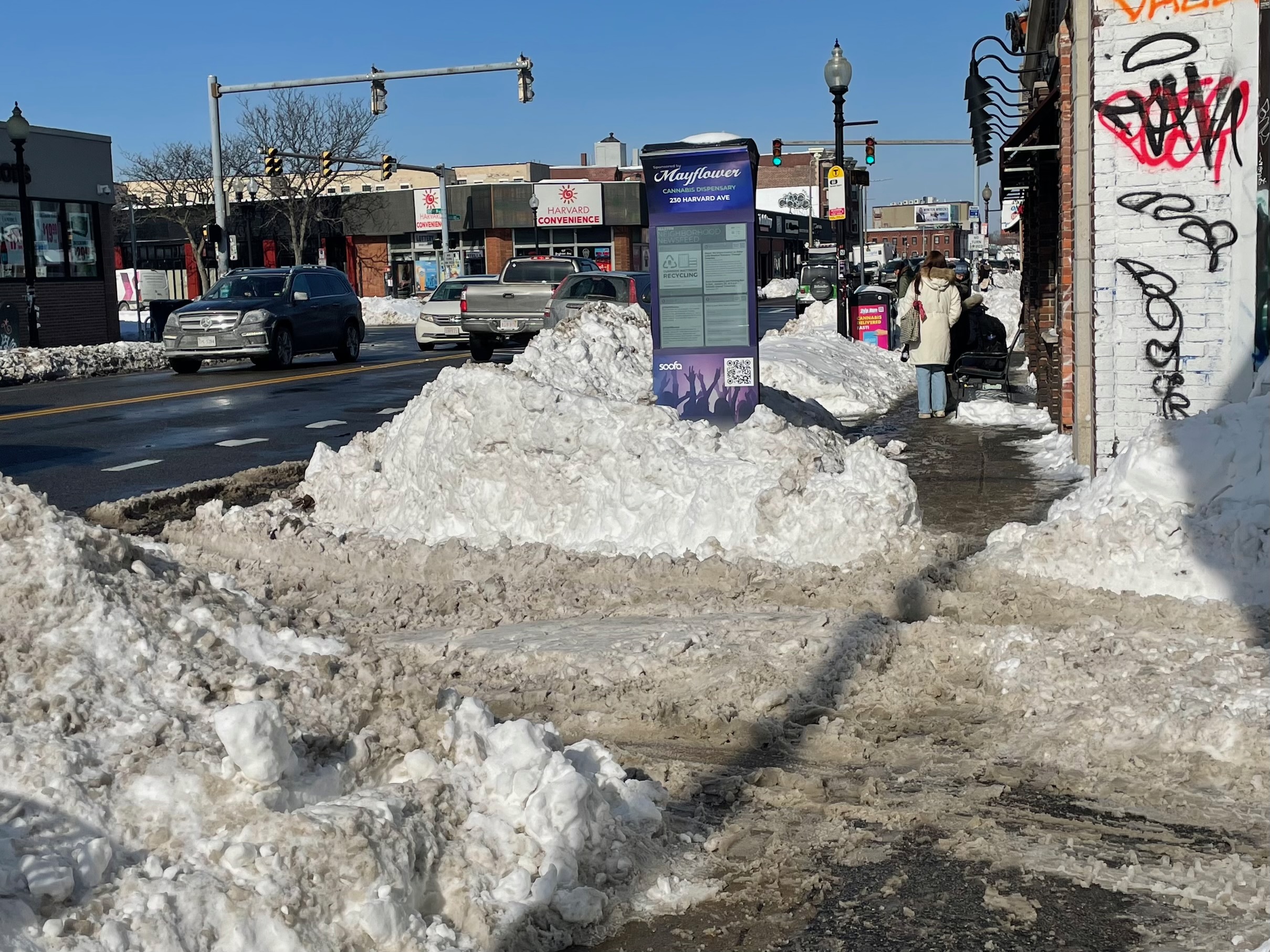Last week, Governor Baker's administration filed a proposal for Massachusetts to immediately adopt California’s Advanced Clean Trucks regulation, which would require increasing shares of electric vehicles among the Bay State's new truck sales between 2024 and 2035.
In a press release, Energy and Environmental Affairs Secretary Kathleen Theoharides said that “Massachusetts continues to take aggressive action to reduce emissions from the transportation sector, and addressing pollution from medium- and heavy-duty vehicles and advancing the market for clean trucks is an essential part of this effort."
California's Air Resources Board, the state's air quality management agency, created the Advanced Clean Trucks rule in 2020 to reduce greenhouse gases and hazardous air pollutants like nitrogen oxides, which cause respiratory problems for people who live or work near busy roads.
Massachusetts and most other northeastern states have already adopted other Californian vehicle emissions standards, which go above and beyond federal regulatory requirements. Still, the sales requirements will only have a modest impact on the trucks and buses that are actually on the roads, since only a small fraction of heavy-duty trucks get replaced by new vehicles each year.
Based on typical turnover rates, the Union of Concerned Scientists has estimated that, even if states like Massachusetts meet these new targets for electric truck sales, only 5 percent of trucks that are actually on the road will be zero-emission vehicles by 2030.
California's new regulation on trucks applies to three broad categories of vehicle: Class 2b-3 trucks and delivery vans (this category also covers large pickup trucks that weigh over 8,500 pounds), Class 4-8 trucks, which include school buses, bucket trucks, and garbage trucks, and Class 7-8 trucks, which include big rigs and heavy dump trucks.
The rule would require 9 percent of new Class 4-8 truck sales, and 5 percent of other truck sales, to meet the "zero emission" standard in 2024. Those proportions would rise gradually each year, and hit 50% of Class 4-8 truck sales and 30 percent of other truck classes by 2030:
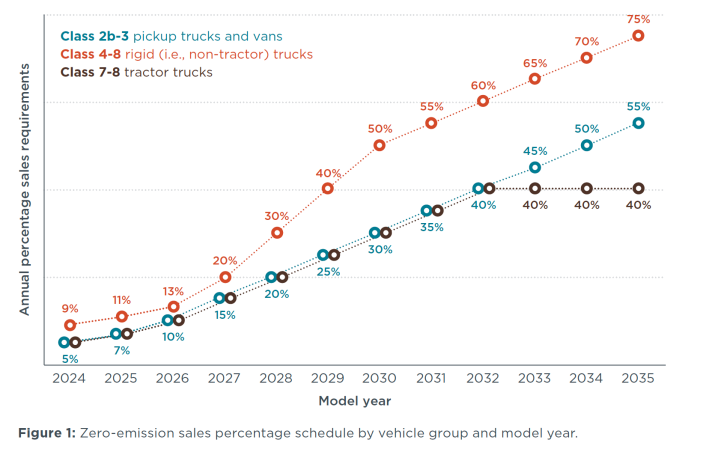
Massachusetts is fast-tracking its adoption of the new regulation as an "emergency" authorization because the federal Clean Air Act requires any state that adopts California's standards to do so at least two model years before the new regulations take effect, and model year 2025 begins on January 1, 2024.
By announcing the proposal before the end of 2021, the Commonwealth's Department of Environmental Protection met that federal deadline and kicked off a public commenting period that will end on February 11. A public hearing will also be held on February 1.
